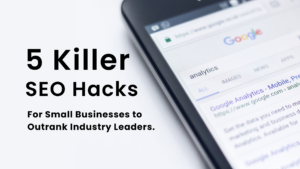
In the dynamic landscape of marketing, where technology is reshaping the way businesses connect with consumers, the role of Artificial Intelligence (AI) has emerged as a game-changer. Join us on a comprehensive journey through the five stages of AI maturity in marketing, exploring how innovative companies are leveraging AI to revolutionize their approach and create deeply personalized experiences.
Table of Contents
1. FOUNDATION: GATHERING THE DATA
The first step in this transformative journey is laying a solid foundation. AI-driven marketing begins with the collection of data that fuels intelligent initiatives. We emphasize the crucial role of first-party data, particularly in regions with stringent data protection rules. By directly engaging with consumers, businesses can build a robust foundation for their AI-driven marketing efforts.
Illustrating this stage is The Coca-Cola Company’s ingenious use of its Freestyle dispenser, which not only quenched thirst but also gathered valuable data on customer preferences and behaviors, leading to successful product innovations.
2. EXPERIMENTATION: REFINING THE CONSUMER EXPERIENCE
With the foundation in place, companies move into the experimentation phase. This stage is all about trial and error, where businesses conduct experiments to enhance the consumer experience. An exemplary case is Starbucks, which refined its approach over a decade of experimentation. The shift from sending handcrafted emails to employing AI for hyper-personalized real-time emails showcases the importance of innovation and constant refinement.
During this stage, it’s not just about trying new things but also keeping a close eye on the financial returns, as experimentation allows businesses to align strategies more closely with evolving consumer expectations.
3. EXPANSION: A HOLISTIC APPROACH TO PERSONALIZATION
As insights accumulate from experiments, businesses enter the expansion phase. Here, the focus is on growing understanding of consumer behavior and preferences. The goal is to extend personalization beyond specific touchpoints in the consumer journey. An excellent example is Thread, now owned by M&S, which leverages AI to personalize wardrobes by combining recommendations from personal shoppers with algorithms distilling data from various sources.
The expansion stage marks a move toward creating a seamless and personalized consumer experience, touching various aspects of the consumer relationship.
4. TRANSFORMATION: ALL-ENCOMPASSING PERSONALIZATION
Transformation represents the pinnacle of AI maturity in marketing. Companies in this stage aim to personalize every facet of consumer engagement using AI. This requires significant investments, including the development of in-house capabilities or acquisitions of specialized companies. Disney’s MagicBand is a prime example, using AI to monitor visitor movements in theme parks, predict customer actions, and enhance efficiency, operating margins, and footfall.
The transformation stage is where every interaction with the consumer becomes finely tuned and customized to individual preferences, strengthening the brand-consumer relationship.
5. MONETIZATION: EXPANDING OPPORTUNITIES
In the final stage of AI maturity in marketing, companies with a solid foundation, a wealth of data, and advanced AI expertise can explore monetization. This may involve developing new business models, offering AI as a service, or creating revenue streams by capitalizing on cultivated AI capabilities.
A standout case is Alibaba’s evolution from an online marketplace into a data-centric ecosystem. Their ‘smart business’ model, incorporating machine learning, enables businesses with common goals to make strategic decisions within a digital network.
By following these five stages of AI maturity, businesses can leverage AI and data-driven strategies to create deeply personalized experiences, setting the stage for a more engaging and impactful future in marketing. As technology continues to advance, embracing AI becomes not just a choice but a necessity for staying ahead in the marketing revolution.
Read Also: The Best Platforms to Buy Instagram Followers in the UK in 2024
- The Importance of Digital Marketing in the Automotive Industry
- How to Optimize a PDF Document for Search Engines
- Unlocking The Power of XML Sitemaps for SEO Success
- How to Optimize Your Website for International SEO
- Unlocking Business Growth in 2024: Comprehensive SEO Strategies for the Modern Marketplace
- 5 Killer SEO Hacks for Small Businesses to Outrank
- 1 Comment
- Marketing
- Marketing Revolution






Pingback:Decoding Gen Z Engagement: A Strategic Dive into Social Media Practices for SEO Optimization